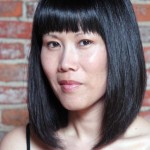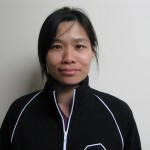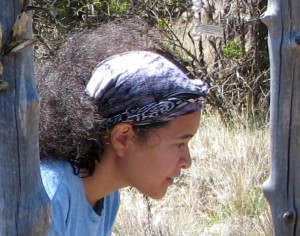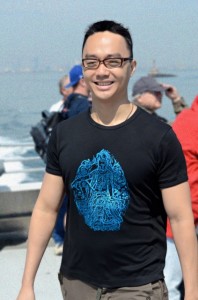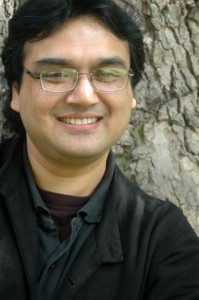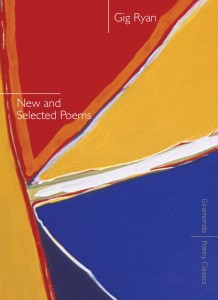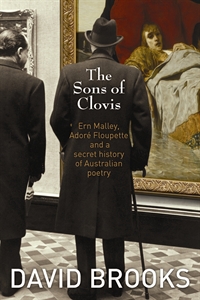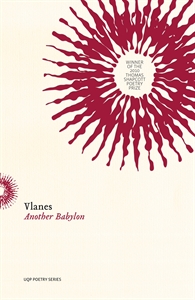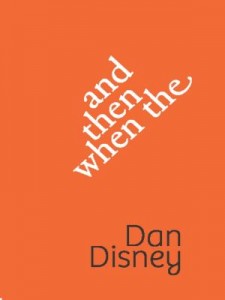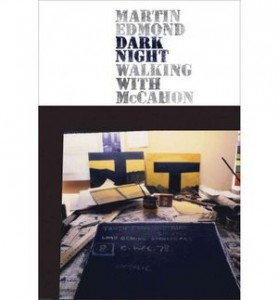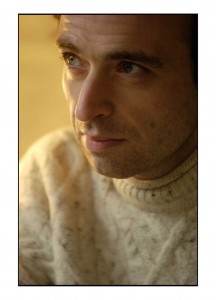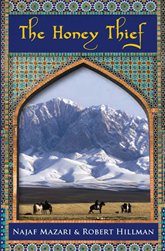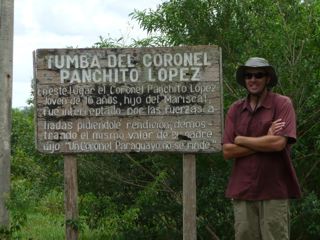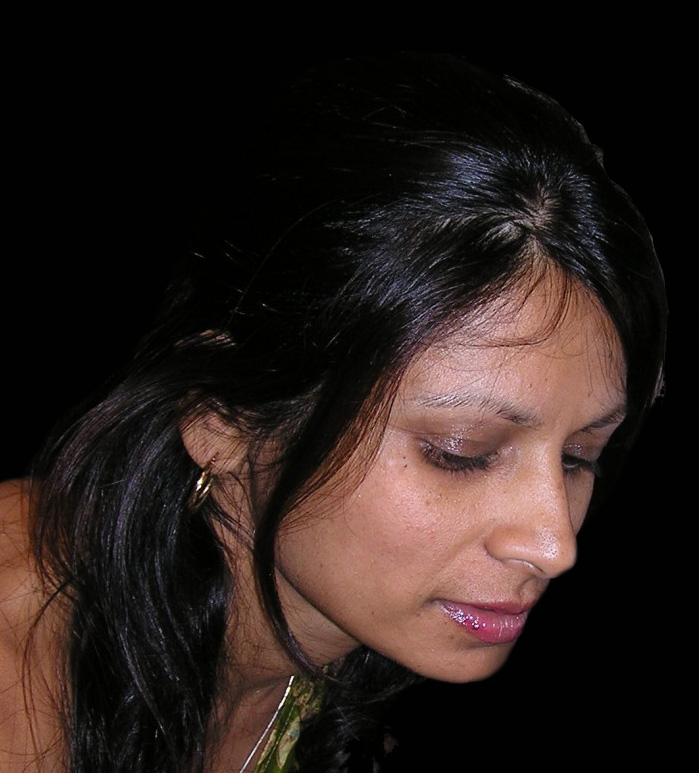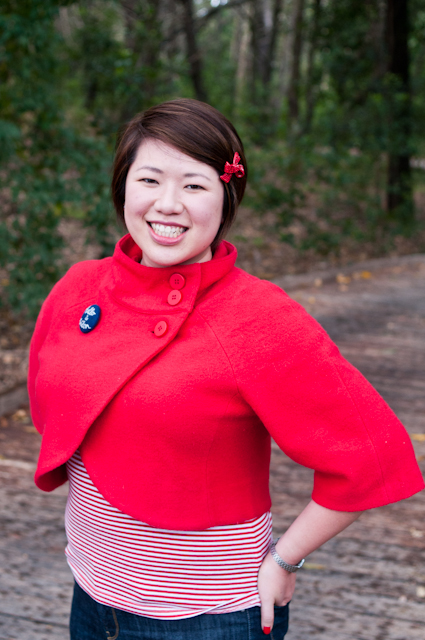
John Tranter has published more than twenty collections of verse, and has edited six anthologies, including The Penguin Book of Modern Australian Poetry (with Philip Mead). He studied for and received a Doctorate of Creative Arts from the University of Wollongong and is an Honorary Associate in the University of Sydney School of Letters, Arts and Media, and an honorary fellow of the Australian Academy of the Humanities. He has given more than a hundred readings and talks in various cities around the world. He founded the free Internet magazine Jacket in 1997 and granted it to the University of Pennsylvania in 2010. He is the founder of the Australian Poetry Library at http://poetrylibrary.edu.au/ which publishes over 40,000 Australian poems online, and he has a Journal at johntranter.net and a detailed homepage at johntranter.com.
Photograph: John Tranter, Cambridge, 2001, by Karlien van den Beukel.
Toby Fitch was born in London and raised in Sydney. His first full-length collection
of poems Rawshock was published by Puncher & Wattmann in 2012. He was shortlisted
for the Peter Porter Poetry Prize 2012 and has published poems in anthologies, newspapers
and major journals, nationally and internationally, including Best Australian Poems2011
and 2012, Meanjin, The Australian, Cordite, and Drunken Boat. He is poetry reviews editor
for Southerly journal, and is a doctoral candidate at Sydney University.
http://tobyfitch.blogspot.com
Toby Fitch: Let’s start by talking about your most recent collection of poems,
Starlight: 150 Poems (University of Queensland Press: 2010), which to me
presents the culmination of a number of text-generating techniques in your poetry.
For the 83 poems in the second section of Starlight, ‘Speaking French’,
you created these by reading poems by Charles Baudelaire, Paul Verlaine,
Arthur Rimbaud and Stéphane Mallarmé into a speech-to-text computer program,
reading the poems in French, though the computer program only had an English
dictionary. The computer then spat out an initial kind of mistranslation that
provided you with a completely new set of words, sounds and phrases to shape
into your own poems. How did you sift through and choose what to use from the
texts that were spat out by the computer?
John Tranter: The speech-to-text program produced a page or two of prose
in each case, mainly gibberish. I worked through each piece throwing out things
that didn’t seem to fit, and moving pieces of text around until some kind of narrative
emerged. I did a lot of rewriting, until I had about a page of reworked writing.
Fitch: Did the speech-to-text program pick up much of the original French
and the original writers’ concerns?
Tranter: No, what it produced was almost totally different. It only ‘understood’
American English, and it was tinted with contemporary Americanisms, naturally
enough: CIA, CD, spreadsheet, voting, market, company, fax, and so on, phrases
you would be likely to find in a letter dictated by a business manager in
contemporary America – which was the target audience and purpose for the program
– a lingo I sometimes played riffs on. It’s interesting how often ‘CIA’ occurs, for
example. Those phrases don’t occur in the originals!
Fitch: Of course not. What made you structure these mistranslations as sonnets,
as opposed to writing them in freer forms, or with no prescribed line count?
Tranter: Perhaps my passion for neatness. At some point I saw that these drafts
could be turned into fourteen-line poems, give or take a few lines, so I turned them
all into sonnets.
Fitch: Writers often start to write a sonnet planning that it will be a sonnet, from
the start. Had you ever done any of this kind of thing before, just turning a whole heap
of different short poems into sonnets? Was this how your early book Crying in Early
Infancy: 100 Sonnets came about?
Tranter: Yes, that’s more or less what I did with the forty or so short pieces of poems
that I brought back from Singapore in the early 1970s. I lived in Brisbane from 1975
to 1977, and Martin Duwell (who also lived there) asked if I had a book manuscript he
could publish. He had already published my chapbook The Blast Area in 1974 as
number 12 of the Gargoyle Poets series. There are quite a few fourteen-line poems in
The Blast Area too.
I thought about what I had lying around, and proposed a book of one hundred sonnets,
and worked on those forty short poems until that is what I had to give him, which
became the book Crying in Early Infancy: 100 Sonnets (Makar Press, St Lucia, 1977).
I asked Martin to choose an order for the poems, as I couldn’t see much pattern in them.
Most of those ‘sonnets’ are not rhymed.
Fitch: A lot of readers might feel that much modern poetry is kind of formless. But the
sonnet form is quite old, older than Shakespeare, and most sonnets are very intricately
structured. Is it the sonnet’s neatness that appeals to you?
Tranter: You’re right. I do seem to have a psychological need to make things look tidy;
to clean up the kitchen, which I do first thing every day, to do the washing up and the
washing, to iron a creased shirt. With me, I guess it has something to do with growing up
on a farm. I like tractors, and learned to drive one at age ten or twelve – and with a tractor
you turn a paddock full of old dead plants and weeds into something ploughed into neat
rows and sown with shiny new plants – say peas or beans – then you harvest them, sell
them, and make some money. There’s a process there: you work at transforming
something wild and chaotic into something neat and ordered, and if you’re lucky, you
make a living. That process is older than capitalism: it began with agriculture, tens of
thousands of years ago. Except we now add fertiliser, made from mountains of bird shit
in Nauru.
And that’s how poetry works: you turn the jungle and chaos of talk and speech and action
and history into ordered lines of verse, neatly set up with rhyme and stock epithets to be
memorised and reproduced, over and over again. The incoherent mess of physical and
emotional experience is transformed into literature: stories that have (an artificial) shape,
pattern and meaning.
I was talking about these more recent French-derived poems in Starlight with poet
and radio producer Robyn Ravlich for an ABC radio program a year or so ago, and
mentioned that some critics had objected to my calling the Crying poems sonnets,
because they lacked rhyme (well, some of them had rhyme, but none of these so-called
critics noticed or mentioned that.) ‘Perhaps I should call these new ones Nonnets,’ I said:
‘Non-rhymed sonnets.’ Robyn quite properly reminded me that the word Nonnets was
already taken: for nine-line sonnets. ‘Okay,’ I said, ‘Let’s call them Ronnettes:
Rhyme-Free Sonnets’. So that’s what these poems are, Ronnettes. (I also like the vocal
group of that name, a big-hair 1960s girl group from New York City produced by Phil
Spector: they had some really big hits.)
Fitch: Yeah, so they don’t use rhyme, but they are divided into eight and six-line
stanzas. What other organising principles are at work?
Tranter: I had the idea of linking them somehow to John Ashbery, a friend and
long-term influence on my work. The poems were originally written as part of a Doctor
of Creative Arts thesis at the University of Wollongong, and one of the purposes of the
arguments buried within the thesis is the influence on my writing of the poetry and lives
of Arthur Rimbaud, ‘Ern Malley’ and John Ashbery, who, as it happens, are linked in
other ways too.
So I read through Ashbery again and selected a hundred or so lines and phrases from
his work that I liked, and took each fragment and wove it into the fabric of each of the
hundred or so ‘Ronnette’ poems I had written. Well, there were over a hundred,
originally. I dropped many of the less successful poems for the book publication. So if
you have read all of John Ashbery and have a good memory, as you read through my
‘Ronnettes’ little flashes of recognition will occur to you and will help to make your day
more varied and interesting.
Fitch: What was your criteria for choosing certain Ashbery lines, how and where in the
poems did you decide to splice them in, and did all the Ashbery lines survive the editing
process?
Tranter: I chose the lines I liked, that seemed striking or strange or original. It was just
a matter of personal taste, really, or perhaps whim. And I looked to match the concerns
of the Ashbery lines with what my poems seemed to be about; or perhaps contrast them,
depending on my mood at the time. If a poem mentioned the seasons, I inserted an
Ashbery line about the seasons or the weather; if a poem contained a line like ‘You will
find, in that vista, all you could have been’, say, I would add this Ashbery line (about a
vista) just ahead of it: ‘From where I sit I can see hundreds of freight cars.’ Here are some
of the Ashbery lines I used, together with the poems they appear in – you’ll see I thought
of dropping some, though I can’t remember why – perhaps the poems they were in failed
to work:
Men appear, but they live in boxes. / Rimbaud: Shames
Behind the steering wheel / Rimbaud: Story
Turn on the light / Rimbaud: Departure
Advancing into mountain light / Rimbaud: Villas
It’s true we have not avoided our destiny / Mallarmé: Wild Swine…
The distant box is open / Rimbaud: The Fixer
But hungers are just another topic / Rimbaud: Genius
You who were always in the way / Rimbaud: Pronto
To tell the truth the air turned to smoke / Mallarmé: Bracket Creep
There was calm rapture in the way she spoke / Rimbaud: Bottom of the Harbour
Performing for thousands of people / Rimbaud: Childhood
the vineyards whose wine tasted of the forest floor / Rimbaud: Winter Maps
There is no possibility of change / Rimbaud: Flowers
I prefer ‘you’ in the plural / Mallarmé: Whistle While You Work
The whole voyage will have to be cancelled. / Rimbaud: Horticulture
Silly girls your heads full of boys. / Rimbaud: Movements
Barely tolerated, living on the margin / Rimbaud: Lives
This was our ambition: to be small and clear and free / Rimbaud: Martian Movie
night after night this message returns / Rimbaud: New Beauty
but the fantasy makes it ours / Rimbaud: Marinara DROPPED??
the promise of learning is a delusion / Rimbaud: Metro
It was raining in the capital / Rimbaud: Phrases DROPPED?
she thought she had seen all this before / Rimbaud: Tenure Track DROPPED?
you are the harvest and not the reaper / Rimbaud: Ornery
the presumed landscape and the dream of home / Rimbaud: Parade
Fitch: Did some Ashbery lines get subsumed into your writing so much that you
forgot which ones were yours and which were his?
Tranter: Oh yes. In fact I was disappointed to discover, on reading through the
poems months later, that some very clever lines that I had grown to assume were mine,
in fact had been borrowed from Ashbery, whose cleverness is more effortless and
abundant than my own. And vice versa, perhaps: when John read the collection he
said ‘Some of its lines felt as though I wrote them.’ He has a very dry sense of humour.
Fitch: The issues of influence are very important to your poetics. Can you talk
about the influence of Arthur Rimbaud on you and on your attitudes towards writing?
Tranter: Sure: it was an early influence, and felt important to me. I have already
talked about that at length in my long poem ‘Rimbaud and the Modernist Heresy’
and in book reviews and interviews: I suggest the interested reader search Google
for ‘Tranter’ and ‘Rimbaud’. Kate Fagan and Peter Minter have a very clever essay
on the topic in Jacket magazine (1) which is also published in Rod Mengham’s
Companion to John Tranter book from Salt Publishing in the UK. (2)
Fitch: Yes, that’s a fascinating essay which reads your poetry as having, via Edward
Said, a kind of ‘“Orientalising” force in Australian poetic reflections on the European
and… the American’, i.e. an ‘otherness’.
Tranter: To me, Rimbaud, being French (culturally distant) and historically distant,
was always strange and very ‘other’.
Fitch: Of course, Rimbaud made it to Java during his travels after giving up poetry…
Tranter: Yes, he travelled obsessively, often by walking. He was what the French call
a Fugueur’.(3) After he gave up poetry around 1873 he visited seventeen countries and
travelled more than fifty thousand miles. In many ways his life after 1873 was more
varied, strange and interesting than the rather predictable earlier career of the
smart-arse gay poet in Paris in his late teens.
Fitch: One of his biographers, Graham Robb, even suggests he might have made it to
Darwin.
Tranter: I think that’s quite possible. In fact – well, let’s backtrack a little. When I met
Sidney Nolan over dinner at Manning Clark’s place in Canberra in the late 1980s I was
alarmed by Nolan’s story about his visiting the Rimbaud museum in Charleville, in
northern France – decades before. In a margin of Rimbaud’s diary, or perhaps
notebook, Nolan said, someone – probably Rimbaud – had pencilled the words
‘Wagga Wagga’. Of course he could have visited Wagga Wagga in 1876, between
deserting from the Dutch army in Java and returning to Europe some months later,
but to any reasonable mind, the evidence is against it. Years ago I searched the Wagga
Wagga Advertiser for clues as to the presence of a young Frenchman there in the
latter half of that year, but alas, the search has been fruitless. So far.
Fitch: I think the pencilled words might actually have been “Wagga Wagga berry”
(see footnote on p.283 of Robb’s biography), which I guess Rimbaud could have tasted
at some stage in Darwin, or anywhere really, if such a berry exists.
Though, there’s also a Berry Street in Wagga Wagga…
Tranter: That’s odd. The main newspaper in Wagga Wagga for over a century has been
the Wagga Wagga Advertiser. Frank Moorhouse, the Australian novelist, worked on
that paper as a journalist in the early 1960s. His great novel trilogy is based on the life
of an Australian woman diplomat named Edith Campbell Berry, probably named after
a town called Berry, near where Frank grew up, in the town of Nowra, on the south coast
of New South Wales.
Fitch: Like Rimbaud, you became disillusioned with poetry at a young age, travelling
in the late 1960s/ early 1970s to live in Singapore, but then you returned to Australia.
Can you tell me a little more about the ‘otherness’ of your work, and how that might
have sprung from your early disillusionment?
Tranter: When I left Sydney for Europe in 1966, it was partly to see the world, but also
partly to get out of Australia, which was suffocatingly dull and hideously authoritarian
in those days. No one under fifty can imagine how bad it was: petty rules and regulations
everywhere, censorship, police corruption and thuggery; it went on and on. So if that
was normal, I wanted something ‘other’. Anyhow, I returned to Sydney in 1967 and
eventually finished a degree.
Being posted to Singapore as Senior Education Editor for Angus and Robertson in 1971
– they had been a major publisher, especially of poetry, for a century, believe it or not
– presented a wonderful opportunity to experience a very different culture. (I’m looking
forward to visiting Singapore again for the Singapore Writers Festival in November 2012.)
The variety of food was and still is wonderful; but the culture of Singapore in those days
was very repressive. They even forced you to cut your hair short by making you go to
the end of every line (waiting at a bank, or shop) if your hair was long. Visitors with long
hair were not allowed to disembark from their plane. And so on. Needless to say I had
frequent haircuts.
At one time when I had rather long hair, and I was followed by a gang of children
calling out ‘Charlie Manson your Leader! Charlie Manson your Leader!’ That was
the level of debate.
While I was there from 1971 to 1973 I read lots of novels, and no poetry. But this
distaste for the artificiality of poetry occurred every eleven or so years, I eventually
realised. Much later I asked a psychiatrist how that could be, when there was no natural
or social phenomenon which occurred in eleven-year cycles. ‘Oh, there is one,’ he
replied. ‘Sunspots’. Well, that floored me. I don’t believe in the effect of sunspots on
human behaviour, but it looks as though I may have to.
Fitch: My crises, for want of a better word, tend to happen every three to four years,
though I think of them more as flips of a magnetic field, like a reversal of the north and
south pole (which I guess is relatable to the sun). When was the last, most recent,
sunspot for you? Did it happen before Starlight:150 Poems, or around the time you
published your Urban Myths: 210 Poems: New and Selected, in 2006?
Tranter: I should look it up. Uh… 2005, according to my Maniac’s Almanac. What was
I doing in 2005? Not much. I finished ‘Urban Myths’. I had failed to obtain a grant
from the Literature Board, which was not uncommon. I had failed to obtain a grant
from the University of New South Wales, but then I always have. I was pretty miserable,
as usual. (Don’t be a poet!) I think any distaste I felt was for the people who inhabit
the world of literary bureaucracy as public servants or ‘advisors’. I was soon to enrol for
my doctoral degree at the University of Wollongong, which was fun. I had the good luck
(or good sense) to end up with John Hawke as my supervisor. He was immensely helpful.
Fitch: Your mistranslations of Rimbaud’s poems from Illuminations aren’t at all an
act of copying, but could your mistranslations be considered a postmodern contribution
to the long tradition of artists painting studies (or writing versions) of their favourite
artists’ works?
Tranter: Oh yes, indeed they could. I’m conscious of that long tradition, and of my
place within it. I think that is how any artist learns her or his craft. The Australian poet,
Robert Adamson, talked about his experiences with that process to me once, in an
interview we did in 1978 for Makar magazine. (Reprinted in A Possible Contemporary
Poetry. St. Lucia, Qld. : Makar Press, c1982. 160 p., and available on the Internet at
http://johntranter.com/interviewer/adamson1978.shtml).
It’s common in graphic design, in typography, in painting (Bacon on Velázquez, Picasso
on Velázquez) and in music (think of Bach’s ‘Goldberg Variations’ or Beethoven’s
‘Diabelli Variations’) as well as in literature. With Shakespeare, his every storyline was
borrowed from some other writer.
Perhaps it is not talked about so much in writing these days, because writers are often
nervous of accusations of plagiarism, and then there’s the morass of hoax and fakery
to make one self-conscious.
Fitch: Do you still get excited when you read early modernist poetry, specifically
the French?
Tranter: Perhaps ‘getting excited’ is what you expect from drugs or sex. With writing,
at least at my age, it’s more a kind of quiet glow. Yes, those writers from Baudelaire
to the mid twentieth century European poets faced up to the modern world with some
extraordinary creations; you see it in music too in Fauré and Debussy and others, and
in art with Impressionism.
These artists were there on the ground when the Industrial Revolution, the French
Revolution, the Napoleonic Revolution, the Scientific Revolution, the Socialist
Revolution and the Romantic Revolution all crashed head-first into the modern world
one after the other in slow motion, all of which took most of the nineteenth century
to work out. The French Revolution occurred over the decade 1789 to 1799, the fax
machine was patented in 1848; Baudelaire’s day (1821–1867) saw the steam
train, photography and the telegraph revolutionise all the world.
I was delighted to discover an obsession with those inventions (and with the telephone
system and automobiles and airplanes) in Proust’s later autobiographical novel, looking
back over his youth, from the early twentieth century.
Fitch: All that machinery…
Tranter: Yes, first tractors, then Proust. Like Auden, I find machinery interesting; as
much so as I do literature. What did he write? When Auden was nearly thirty he wrote
“Tramlines and slagheaps, pieces of machinery, / That was, and still is, my ideal
scenery.” Gosh, what a clunky dactyllic rhyme. Rimbaud’s friend and fellow-poet Charles
Cros (they worked in a cardboard-box factory in London together) invented the
gramophone and demonstrated his device before the French Academy in 1877, four
months before Edison demonstrated his machine, but Edison (not a dreamy poet, an
American entrepreur!) was the first to take out a patent. So poets and machinery can go
together.
Fitch: Can you speak French? Can you speak pig Latin? Can you speak in HTML?
What role does the multi-lingual have in your poetry, and do you think there are enough
dealings with other languages in contemporary Australian poetics?
Tranter: Just English. I have always felt that Australians are lucky to have the English
language, with its extraordinary reach and complexity, most of which comes from the
cross-fertilisation with other languages, because of Britain having been invaded and
conquered by the Celts in 600 BC, by the Romans in 43BC, by the Anglo-Saxons in AD
450, by the Vikings in 793, by the Norman French in 1066 and by the Dutch under
William of Orange in 1688. The last is often overlooked, but it was a massive invasion
of 53 warships bristling with 1,700 cannon,which fortunately was not resisted and in
many cases welcomed, at least by those of a Protestant persuasion.
Other languages are interesting, but I don’t feel they are necessary. But that may just be
me justifying my own shameful limitations. I can speak enough poor French to find
myself in serious trouble in a restaurant. Latin, no; my daughter learned Latin
(thoroughly) one summer in New York. I’m veryimpressed by that.
I went to school in a little country town, where no one taught any languages. It was felt
that Australian farmers didn’t really need French, for example. It’s hard to argue with
that view. I had never heard anyone speak anything but Australian until I was an adult.
What a shame!
Fitch: I guess you hardly need French to talk to pigs. What about the complications
of publishing on the Internet? Did you have to learn that language?
Tranter: Yes, but I was lucky. I had learned a computerised typesetting code that was
more or less the same as HTML when I helped my wife Lyn to run a typesetting
business in the late 1970s. So when I taught myself HTML and Cascading Style Sheets
from books, in the late 1990s, it felt fairly easy. I wanted to make Jacket magazine
(1997–2010) look attractive and also pleasant to use: that is, easy to navigate, so I felt
I should learn all that stuff.
Fitch: Back to those versions of other writers: why did you choose to write
mistranslations and versions of these particularly well-known French poets? Why not
choose more obscure poets? Is it to do with access to the original foreign-language
poems, i.e. so that a reader can compare your version to the blueprint of the original
poem, or is it to do with something else altogether?
Tranter: Partly the public access, and the comparison, yes. Martin Duwell
has a good account of my poem ‘Rotten Luck’ in a review of Starlight: ‘This is not only
a better, tighter, and more intense poem than Baudelaire’s “Le Guignon”, it makes a
point of transforming its original humorously.’ What a kind reviewer!
The distance between Baudelaire, say, and one of my ‘versions’ of his work, is really the
150-year gap between 1860 and 2010. We can never really recapture what it felt like for
Charles Baudelaire to go for a walk in the Paris of 1860. We can take the same walk today,
but everything is different, even the street map, the pavements (less cobblestones for
people to throw at police, and that’s not an accident), and the shoes. And then there’s
what Paris went through in two World Wars, which Baudelaire could not have imagined
in his worst nightmares.
He didn’t even live to see the first of the three great German-French wars, the Franco
-Prussian war of 1871, when the Germans practiced invading the rest of Europe.
Rimbaud saw it up close: it ploughed across his backyard in Charleville. Once the railways
were properly set up, the Germans did it in earnest in 1914. And by 1939 they didn’t need
the railways, really. They had Panzer tanks and a good air force.
But to be honest, the original material is not important, and anyway it’s so mangled
when I finish with it that it’s only my literary savoir-faire that can turn the sow’s ear
into the silk purse that my readers demand. So perhaps the whole process is merely
a meal for my ego.
Fitch: Have you used computers for composing other creative writing texts
before this?
Tranter: Yes, on and off for decades. For example, I compiled a book of seven prose
texts titled Different Hands back in 1998. They are all blends of two different original
works. As an example, one of them,‘Room With a View, Spa Bath, Many Extras’ is
derived from the computerised blending of part of the extremely literary novel Room
With a View by E.M. Forster, and advertisements for properties for sale in Sydney’s
Eastern suburbs, hardly a literary source at all. From that linguistic domain we have
the phrase ‘deceptively spacious’, one of the great non-sequiturs of modern English.
So it really is a blend of different registers. But the point of those pieces was to start
with something deliberately lacking in meaning, and by dint of much hard work to
drag it in the direction of meaning.
Fitch: You’ve provided extensive notes on your website for all the poems of Starlight.
Some poets who write versions or mistranslations don’t provide any notes whatsoever.
Tranter: Maybe they want to hide where their inspiration really comes from!
Fitch: ‘Inspiration’ doesn’t sound like a word used in relation to text-generating
poetics, or is it just unfashionable at present to use that word for fear of its alignment
with the Romantic?
Tranter: I’m too old to fear much. To me ‘inspiration’ is not so much a gift of breath
from the gods of verse, but more like the kind of mental spark that might occur to a
biochemist or a mathematician: a kind of ‘Eureka!’ moment where a possible solution
to a problem leaps into the mind.
When some writers use text-generating techniques, they let the computer construct
the text and leave it at that, as they lack any fresh ideas about dealing with the new
material, or perhaps they just lack confidence in their own talents, or perhaps they
have been told that any emphasis on the ‘I’ in a poem is naughty and discredited and
thus they fear to intervene.
Edgar Degas was discussing poetry with Mallarmé; ‘It isn’t ideas I’m short of… I’ve got
too many’ [Ce ne sont pas les idées qui me manquent… J’en ai trop], said Degas.
‘But Degas,’ replied Mallarmé, ‘you can’t make a poem with ideas. … You make it with
words.’ [Mais, Degas, ce n’est point avec des idées que l’on fait des vers. . . . C’est avec
des mots.] (From Degas, Manet, Morisot by Paul Valéry (trans. David Paul), Princeton
University Press, 1960.)
Fitch: Some of your notes were part of your doctoral thesis, so they have an academic
purpose, but what are their importance to more general readers of your work? Do notes
limit the possible readings of a poem, or do notes provide extra layers for possible
readings? You seem to have used them a lot, over the years.
Tranter: I like notes, true. Perhaps too much. A story I like, by J.G. Ballard, consists
only of condensed notes: the detailed and richly complex Index to a non-existent novel.
The reader has the very creative task of rebuilding the story of the novel from the strange
(and often humorous) clues in the Index. The story is titled ‘The Index’, and was written in
1977 and published in The Paris Review, volume 118, (Northern) Spring, 1991.
Of course the novel of ‘The Index’ that you reinvent in your mind is different for every
reader, and each reader is joining in with the writer to create it.
But the notes are meant to provide extensions to the text, like hair extensions, I guess,
not limits. I don’t like to limit how my readers understand my poetry. I have always felt
that a poem belongs to the reader, and they can do what they like with it. With my book
of narrative poems The Floor of Heaven, written in the 1980s and sometimes set as a
Higher School Certificate recommended text for study, a school pupil called Olivia T
wrote to me just this year with the suggestion that a particular character in one of the
interlinked poems, Sandra, was really the un-named narrator in one of the other poems
titled ‘Gloria’. I hadn’t thought of that, in all of the quarter century that has passed since
I wrote it, but it’s a very clever suggestion, and it’s probably true. I thanked her.
The Spanish anarchist film director Luis Buñuel said in the 1950s that films work in
the same way as dreams; and I believe that poems work in that way too. And often
someone else (a trained therapist, say) can understand your dreams better than you can,
because dreams are often disguised specifically to prevent you from seeing just what
they mean. Sometimes other people can see through that disguise, as they don’t need
to have those truths hidden from their conscious minds.
Fitch: I think you mentioned Buñuel and that quote, and the idea that poems work
like dreams, in the Introduction to the anthology The Best Australian Poems 2011, which
you compiled. Do all poems have to work like dreams?
Tranter: You’re quite right, and as well I drew all those ideas from my doctoral thesis.
And no, poems don’t all have to work like dreams. Of course not. In fact in my Introduction
to this year’s Best Australian Poems 2012 anthology I state the opposite, by showing that
most of the poems I chose have stories to tell, and work like brief narratives or condensed
stories. They don’t work like dreams at all. But then, most dreams and most movies are
built on narratives, however distorted. So I guess I can have my cake and eat it too.
Fitch: Talking of Buñuel, you seem to love movies. Many of your poems in previous
books mention movies, or deal with images or scenes from movies in interesting ways.
Can you say a little bit more about the relationship between cinema, i.e. the moving picture,
and poetry? The section of poems in Starlight called ‘At the Movies’ is placed between two
other sections of poems that outlay different modes of translation, as discussed above.
What can you say about the ‘translation’ of cinematic scenes, characters, and images,
into poems?
Tranter: I do love movies. They give you thousands of different universes to explore,
each one like a different dreamscape. In fact the book of narrative poems I mentioned,
The Floor of Heaven, was inspired by Buñuel’s 1972 movie, The Discreet Charm of the
Bourgeoisie, where the plot is driven entirely by people recounting their dreams.
When I was a boy, growing up on a remote farm in 1950s Australia, the big event of the
week for me was Friday night at the local town cinema. The feature movie represented
everything foreign and dramatic and wonderful. Cinema had a magic glow that the
everyday world lacked. People actually drank cocktails, in the movies. I had never seen
a real person drink anything but beer or sherry. Perhaps that was the beginning of my
liking for martinis.
Also, basing a poem on a movie is a kind of translation: the movie exists in its own
world, a world qualified by the entertainment economy, by machinery, chemistry,
technology, acting talent, writing talent, and directing talent. Taking the movie out of
that world and inserting it into the world of poetry is a little like updating Beowulf into
a Western movie plot (Ronald Reagan as Beowulf, ) or like blending Freudian theory
and Shakespeare’s The Tempest into a science-fiction movie, which is how the 1956
movie ‘The Forbidden Planet’ works.
A poem about a movie can be a kind of film review; or it can be a kind of remake of the
movie, or it can be a social or political critique of the conventions that appear in the
movie.
Talking of remakes, did you know that the famous Bogart movie vehicle The Maltese
Falcon was in fact the third movie based on Hammett’s story? What happened to the
other two? What gave the third version, with its identical plot, its special magic?
The direction (it was the first movie John Huston had directed)? The acting?
The moody lighting?
Fitch: Maybe it wasn’t the right time, when the first two came out. Maybe people
weren’t ready till the third.
Tranter: Perhaps you’re right. I believe the second one was a rather feeble comedy,
believe it or not.
Fitch: Speaking of timing, who would you rather date: Kim Novak, Lauren Bacall,
and Dorothy Gale, each of whom make an appearance in your ‘At the Movies’ poems?
Tranter: Wow. I feel Lauren Bacall would eat a man like me for breakfast, so no to that
one. And no, I don’t think I could be a friend of Dorothy Gale, cleverly named after the
tornado that swept her over the rainbow into the Land of Oz. Her role was acted by
Judy Garland, a woman I never liked that much. But when I was thirteen, my hormones
just beginning to cause trouble, I saw Kim Novak in the movie _Picnic. She seemed like
a beautiful, innocent goddess to me. And then in Vertigo… goddess again. I wanted to
marry her. So Kim, definitely.
Though decades later I read an interview with a much older Kim Novak where she
talked about how wonderful trees are: ‘For one thing, I’ve always admired trees.
I just worship them. Think what trees have witnessed, what history, such as living
through the Civil War, yet they still survive.’ Ouch!
Fitch: So what other painful ordering techniques do you employ to write other poems,
not sonnets?
Tranter: Dozens; everything I can think of. But the reader shouldn’t have to suffer;
let the writer do that! There’s rhyme, of course, though I prefer half-rhyme and
alliteration. Making your end-words rhyme is one device; repeating them unrhymed in
a varied order is what makes the sestina so strange and interesting. To take that one step
further, I like to take a poem by some other writer and use the end-words in a different
poem of my own; I call that device ‘terminals’. Brian Henry has a detailed explication
of the technique on my web site.
A Chinese-born woman journalist was interviewing me recently and I described how
I took end words from other poets’ work. She looked frightened. ‘But are you allowed
to do that?’ she asked.
Fitch: And here’s a kind of super-terminal: the 253-line opening poem of Starlight
uses the first and also the last couple of words of each line of John Ashbery’s poem
‘Clepsydra’ as a scaffolding technique, and then you’ve filled in the middle of each line
to write your own poem, ‘The Anaglyph’ (one can read about what an anaglyph is, and
about the process of writing your poem here:
http://johntranter.com/notes/starlight.shtml#notes). By the way, was Ashbery
annoyed by your stealing his end words and rewriting his poem?
Tranter: Oh no, I asked – I didn’t want to offend him – and he gave me permission to
do that. I think he liked the idea.
Fitch: You’ve described the process of writing ‘terminals’ as ‘replacing the meat in the
sandwich’, which struck me as a rather masculine way of thinking about it.
Tranter: Maybe so, but I think it’s a pretty good image. The starting word and the ending
word of each line, from Mr Ashbery, are like the two slices of bread; my filling is like the
filling. I saw the process as being like turning a ham sandwich into a turkey sandwich. Not
that John’s a ham, or I’m a turkey! And, for my first fifteen years, my mother always made
the sandwiches for my school lunch, so I have always seen that as a feminine act. But I’m
wandering… go on…
Fitch: (I was thinking of the sexual innuendo, sorry… but you don’t need to answer that
if you don’t want to). The poem itself puts it more neatly, I guess: ‘like gutting then
refurbishing a friend’s apartment.’ Why do all these apartments, i.e. the poems of Ashbery,
Rimbaud, Baudelaire, etc. that you’ve reworked, belong to men? (I don’t mean ‘apartments’,
literally…) I like to think of them as poetic theme parks.
Tranter: That’s a good metaphor. With John Ashbery’s apartment, John happens to
be a male. And with the line about ‘refurbishing a friend’s apartment’, I was probably
thinking about those television shows where someone redecorates a friend’s apartment as
a surprise. Well, everyone pretends it’s a surprise.
And it is true that most of the strong influences on my work have been male poets, but
then I think male poets make up a vast majority of the most influential poets in history, from
Homer to Frank O’Hara, and you can hardly pretend otherwise.
Though there are dozens of women poets whose work I like, from Sappho to Emily
Dickinson to Elizabeth Bishop to a whole bevy of younger US American women writers,
too many to name. (Now ‘bevy’ is a nice collective noun.) Many younger Australian
poets are women, perhaps more than men.
I’m currently writing a ‘Commentaries’ blog for Jacket2 magazine in Philadelphia, and
I am delighted that the editor I deal with there is a woman, Jessica Lowenthal. My first
book was published by a woman. I set up a small press and published four poetry books
in the early 1980s: Gig Ryan’s first book, Susan Hampton’s first book, and books by John
Forbes and Alan Jefferies. And the Penguin Book of Modern Australian Poetry, which I
edited with Philip Mead, was commissioned for Penguin by Susan Ryan. It contained a
higher proportion of women poets than any general anthology of Australian poetry had,
up to that time.
Fitch: Have gender politics influenced your methodology and your poetics over the years?
Tranter: I guess I have always had a supportive attitude to feminism, but that’s more
instinctual than politically informed. My mother, her sisters, and her own mother were
strong women whom I respected, and I was always aware that they should each have been
able to make more of their own intellectual lives, particularly my grandmother. She should
have gone on to university, but the expectation of the times – this was around 1890 – and
her role as a mother of a series of children constrained her. They all felt bound by
society’s expectations to be just a woman, a mother, a supporter of men. Though my Aunt
Barbara became a trained schoolteacher, just as my father did.
And though I generally support feminist thinking, like any good philosophy, it can be
taken too far. Decades ago I worked with a woman with strong feminist views who
insisted that in a job application situation, given two applicants – a man with the exact
talents and skills to do well at the job, and a woman who just happened to be incompetent
in that field – that the job must be given to the woman, because women have been
downtrodden for so long by men. That attitude is a recipe for feather bedding corruption
and the rewarding of incompetence, but that does happen. Even in the world of writing,
unfortunately.
Fitch: You mentioned the high proportion of women poets in the Penguin Book of
Modern Australian Poetry. What about the recent Thirty Australian Poets, edited
by Felicity Plunkett, which has more women in it than men?
Tranter: It’s good to see things changing. When I reviewed that book in The Australian
I wrote ‘though editor Felicity Plunkett doesn’t go on about it, 60 per cent are female,
making this the first general anthology of Australian poetry with fewer men than women
in its pages. This mocks Les Murray’s 1968 remark in American Poetry Review that
“women are writing less well because feminism is there to absorb the energies that
otherwise would have gone into literature”. This myth was always a self-serving untruth
and this collection shows feminism empowered women to write poetry — and more and
better poetry than that written by men, in many cases.’
Fitch: In an earlier anthology of yours in 1979, ‘The New Australian Poetry: the work
of twenty-four poets from Australian poetry’s most exciting decade’, you included your
own poems and you coined the term ‘Generation of ’68’, referring to a certain group of
Australian poets who emerged around 1968 and who had an eye on the progressive
developments of American poets of the 1950s and 1960s. The term is now used quite
widely in current anthologies and reviews, and a number of other poets of the 1970s
are being lumped in with this generation, for convenience I guess, who aren’t necessarily
happy to be defined as such. What was your intention when you coined this term? Did
you realise at the time the extent to which it would mark out a generation?
Tranter: Yes, I included my own poems. I could hardly pretend that they were not
relevant to the topic, and the anthology was a deliberately polemical one, not like later
more general anthologies I compiled. And no, I didn’t realise then how the phrase fitted
so well to a journalistic view of culture. Nobody was happy to be labelled like that, and
very few were happy to be in the book, even though it brought their writing to thousands
of new readers.
When I mentioned to Tom Shapcott, who had edited a few anthologies, that I was about
to compile an anthology, he suggested that in his experience I would lose all my friends.
But why? I asked. Surely those whose work I include will be pleased?
Silly me. He laughed, and explained that those I left out would hate me, and those I
included would hate me because I had not chosen their best poems, because I had put
their work next to X–- whom they hated, and because I had not included their best
friends Y–- or Z–- . And in any case, why hadn’t the publisher asked them to compile
the anthology? I’m remembering this from the mid 1970s. Sadly he was right.
You don’t believe me? When I told my friend John Forbes I had been chosen to edit the
Penguin Book of Modern Australian Poetry, which I thought would be wonderful news
– wasn’t he a friend? – he smacked one fist into the other and said ‘Ah, fuck! Why didn’t
they ask me?’ And when it came out he gave it what I felt was a very unkind review,
though perhaps I was over-reacting in feeling that.
As for the label ‘Generation of ’68’, I think Tom Shapcott first coined the phrase, back in
the early 1970s. I was happy to use the phrase because I had in mind the Indonesian
‘Generation of ’47’, those military men who graduated from the Dutch military academies
in 1947 and later fought to expel the Dutch from Indonesia. I had met some of them in
the early 1970s in Jakarta, General Abdul Haris Nasution for example, a thorough
gentleman. 1968 was of course the year of the ‘enevements’, the European and
Mexican and US student’s revolt’s ‘happenings’, so that fitted.
Fitch: Anyway, let’s get back to ‘The Anaglyph’, a poem of yours which may well see
itself in anthologies of the future.
Tranter: Thanks for the thought, but it’s a long and difficult poem, too long and too
difficult for the average anthology, I fear.
Fitch: I think it pushes your Starlight experiments with text-generating techniques
and with ‘translation’ (in this case from one English-language poem into another) to a
new limit, and creates a shape-shifting, organic form to mirror, or to talk through, the
movement of your career as a poet and the influences that have shaped it.
Tranter: That’s perceptive. Yes, those ideas were certainly in the back of my mind
when I was writing it, though the foremost plan was to do something with the Ashbery
poem ‘Clepsydra’, something clever and moving, that would live up to the original.
Fitch: In Corey Wakeling’s review of Starlight for Cordite, he describes ‘The Anaglyph’
as imperilling ‘the chameleonic bastard-experimentalist enough to name (you) as such.’
Do you also see this poem as a significant moment, or a rupture, in your work? Will it
see a shift to something uncompromisingly experimental in your next book?
Tranter: That’s a strange statement from Corey Wakeling. It’s a little difficult to work
out quite what he means, though it’s an energetic moment. Am I a chameleon? Am I a
bastard? Am I an experimentalist? I suppose so.
As usual, my next book will be a radical departure from all my others, or so I fondly
hope and imagine at the time, though in hindsight all my books are somewhat the same:
they’re all by me. Since we have lived in the age of free verse for over a century, perhaps
the only really radical and different thing to do is write rhymed verse. And yes, I do see
‘The Anaglyph’ as a significant poem, but then I would say that, wouldn’t I? But it is
not a rupture, no; more a development of trends that have been there all along.
It was the opening poem for my doctoral thesis, and in the Introduction to that I wrote
– excuse me for quoting myself – ‘This thesis is made up of a collection of 113 poems and
an exegesis. The poems are written in a mode that has become more prominent through
my writing career, in which the lineaments of another art-work, usually a poem or a
movie, are borrowed and transformed in some way, ranging from a simple imitative
exercise to homage to satire to critique to an experimental reworking of a genre
and its various examples. The exegesis examines this use of borrowing, mask or disguise
in the thesis poems, then steps back in time to explore this theme as it weaves its thread
through my twenty volumes of published poetry.’
If anyone is interested, they can download and read the entire thesis in PDF format
(for free!) from the website of the University of Wollongong:
http://ro.uow.edu.au/theses/3191/ But be warned: it took three years to write, and
it goes on for hours.
Fitch: Do you have a fixation with Ashbery? Is there something about obsession
that goes hand-in-hand with poets and/or writing poetry?
Tranter: No, not a fixation. He’s one of the best poets around, and when I discovered
his work, when I was a young poet, his influence was a very liberating one. I have
always been grateful for that. He is also very courteous and a good friend.
And he’s very smart. He has an extraordinary intellect and a vast cultural appetite.
When he was a teenager he was a nationally successful radio quiz kid – you have to be
really bright to do that – and he has degrees from Harvard and Columbia.
Once when we were having lunch in a New York restaurant he cocked his head on one
side and said ‘Hear that?’ I could hear some distant music, though I had no idea what
it was. ‘It’s the score from Les Parapluies de Cherbourg,’ he said, ‘the 1964 movie by
Jacques Demy. The music’s by Michel Legrand.’ I winced: I had seen the movie when
it came out forty years before, and had disliked it, and I had forgotten the music.
I mentioned that the three main literary models for my poetry have been Ashbery,
the mid-twentieth-century Australian hoax poet ‘Ern Malley’, and the nineteenth-
century French poet Arthur Rimbaud. They were each radical innovators, and as a
writer who grew up in Australia in the 1950s I felt that radical innovation was very
much needed here.
They were also each very smart. I’ve mentioned Ashbery; when Rimbaud was sixteen
he topped the Latin class in his school so overwhelmingly that the Imperial Prince wrote
him a congratulatory letter which his Latin teacher was delighted to read out to the
class. Harold Stewart and James McAuley, the joint creators of the hoax poet ‘Ern Malley’,
were both brilliant young men, full of promise. Not fully realised, alas, but who could
tell, then?
And here’s an odd fact: a Trivial Quiz question, perhaps. ‘What do these three poets
have in common? Arthur Rimbaud, John Ashbery and John Tranter.’ Answer:
‘They all grew up on remote farms.’ I believe we were in fact triplets, accidentally
separated at birth. And of course the spirit of Ern Malley, who died the year I was
born, passed into me through the process of metempsychosis, a favourite theme of
James Joyce, who just about built Ulysses on the idea of metempsychosis. In the
same way that both Bazza McKenzie and Dame Edna Everage are distorted embodiments
of Barry Humphries – ectoplasmic emanations, almost – I have always known that
I am a reincarnation of Ern Malley. It’s quite a responsibility.
As for obsessions, well, it seems that you need to be obsessional to continue with this
ill-rewarded career for a lifetime. It helps if you are clever, talented, well-read,
hard-working, obsessional and deeply stupid.
Fitch: Have you ever written and published poems under another name? Ever been
part of an attempted hoax?
Tranter: Oh yes, lots of other names. But hoax – well, almost, but not quite. I had seen
the damage the ‘Ern Malley’ affair caused. The internet database Austlit gives my several
pseudonyms: ‘Also writes as: Breshan, Joy H.; Dedalus; Hawthorn, Dorian; Heaslop,
Jennifer; Kruger, Chris; Kruse, Peter J.; Lynch, Patrick; Moore, Jo; Pallas, Mark; Simpson,
Rona; Smith, Tim; Thompson, Rupert’.
Those mostly come from the hoax magazine I wrote one morning in 1968, Free Grass.
You can read it here: http://johntranter.com/poems/free-grass.shtml. As a hoax, that
is generally good natured, I hope.
‘Joy H. Breshan’ is an anagram of ‘John Ashbery’ and comes from some computer
experiments I did a decade or so ago. ‘Rona Simpson’ was my disguise as Ron A. Simpson,
a Melbourne reviewer, when I wrote a piece on the late Michael Dransfield for Playboy
magazine. I don’t know why I did that. I guess I had written far too much on Dransfield,
and wanted to give the reader the illusion of reading someone fresh.
Fitch: And ‘Mark Pallas’? Where did that come from?
Tranter: Ah, ‘Mark Pallas’, another of my pseudonyms, is a more interesting case, named
after the Pallas’s Cat, Felis manul, a smaller version of the Snow Leopard, a unique feline
whose pupils are circular, and whose photograph I had liked in an encyclopaedia when I
was ten, partly because it looks as though someone has flattened his head with a blow from
a brick. Mark Pallas’s brief and slightly crazy poems appear in Transit magazine once or
twice.
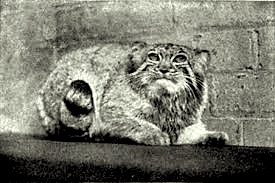
Pallas’s cat, Felis manul, from the Encyclopaedia Britannica
11th edition, 1911.
Fitch: ‘Slightly crazy…’ Was he a projection of your own personality? He didn’t exist as
a person, is that right?
Tranter: I made him up. Yes, I feel he may well have been a projection of a slightly
strange aspect of my own personality, emerging through poetry. And even stranger,
I had the odd experience of talking with my friend and fellow poet Bruce Beaver once
in the late 1960s. He had met a young poet in a coffee lounge in Manly one night, Bruce
said, who chatted on at length about writing poetry. His name was Mark Pallas, he said,
and he had some poems in Transit magazine, published by that John Tranter fellow.
Very strange. I felt as though I had conjured him into existence, a ghost emerging out
of the darkness.
Fitch: Here’s a different kind of impersonation. The 56 poems of ‘Contre-Baudelaire’,
the last section of Starlight, present ‘radical revisions’ of Charles Baudelaire’s poems.
To me, there’s an extremely relaxed sense of fun and play in these poems. Is this
something that’s developed from years of writing? I’m reminded here, again, of a few
lines from your poem, ‘The Anaglyph’: ‘You hope your opus will be taken for
legerdemain, but your effort sinks / Deeper into the mulch of history, while I adjust
the mask that / Just fits more loosely every decade…’
Tranter: I’m glad you felt that sense of fun. I guess it partly comes from the technical
ease that I have developed over a lifetime of writing, yes. Partly. But I suspect it has
more to do with how I came to write those Baudelaire versions. In 2008 and 2009
I was thinking about how to finish a new book of poems. I had about a hundred poems
that were derived from the work I had done for my doctoral thesis, most of them
relentlessly experimental. I felt I needed about fifty more poems, and in a different and
more relaxed tone of voice. I had written a few poems about movies, which you
mentioned, and I shall probably write more, one day, but I wanted some more variety
for this book. Then I started thinking about Baudelaire, whose work I had liked a lot as
an adolescent, but which I had more or less ignored since. And I was having trouble
finding the time and the motivation to write much.
Then I received a surprise email from New York. A friend, the poet and editor David
Lehman, had put my name down for a scholarship to a writing retreat, without telling
me. The committee of the Ursula Corning Foundation chose me and a dozen other writers,
painters, and musicians from all around the world to attend a six week retreat in a
Renaissance castle in Umbria, in Italy, the Civitella Ranieri. You can look it up on the
internet. They sponsor four such gatherings every year. Did I wish to take up the offer?
You bet!
Fitch: Was that like a Writer-in-Residence thing?
Tranter: God, no. This was a real writers’ retreat. Your surroundings were
comfortable, and you had no obligations of any kind. If only the bureaucrats who run
things here could understand how vital that is.
With the last residency I did in Australia, I had little time of my own to write anything,
and lots of talks, readings, events and lectures to get through. I asked the organiser why
there were so many obligations, and he said that the bureaucrats wanted a good ROI –
Return on Investment – and that the Writer had to meet certain KPIs – Key Performance
Indicators. Spare us from such selfish generosity!
In late 2009 I flew to Italy – they reimbursed the air fare – and I had a huge studio and
a bedroom to myself high up in a tower in the castle, and two excellent meals were provided
every day. You fixed your own breakfast. The company was good: a dozen talented creative
artists, each cheerfully doing their thing. The dining room was always loud with laughter
and talk. The fall weather was perfect. There was literally nothing to do, if you didn’t want
to. So I wrote, all day, every day.
Fitch: You wrote all day every day for six weeks? I’d get distracted by the new
surroundings.
Tranter: I was too, for a while. And they had a few bus trips to visit local churches and
look at wonderful old paintings, which most of the other artists went on. I usually said no,
partly because I’m a bit shy, and partly because I had so much to get done, and like Arthur
Schlesinger Jr I felt I had seen enough wonderful art to last me.
When Schlesinger turned 60, he became more aware of his age. After a trip to the cathedral
in Florence, he wrote: ‘As I went into the Duomo, it occurred to me that I have been
visiting churches in Europe for 45 years, and that they have really done very little for me —
my fault, not theirs, of course; but there it is. Why should I waste my declining years going
into churches?… I will simplify life by abandoning the inspection of churches, as in earlier
years I have abandoned ballet, metaphysics, linguistics and other subjects that, however
estimable, are, alas, not for me.’ He lived to 89; a good innings.
And to be honest I didn’t write every day. I took a week to settle in and to do some Jacket
magazine editorial work that was urgent, and a week to wind up, when Lyn joined me and we
drove around Umbria. And I did go on one ‘outing’, with a busload of fellow-artists, on
dangerous winding dirt roads at night, to a remote restaurant in the mountains where they
fed you masses of truffles. Truffles in every course! It was their speciality. I can’t say I
learned to love truffles, but it was a wonderful outing. I loved the sense of camaraderie
and fun.
Fitch: So, in such seeming luxury, were partners allowed?
Tranter: No, only for the last week. And that seemed fair enough: it’s not really a
‘Roman Holiday’. You were there to write, and the less distractions the better. I think
most people write better when they’re on their own, and I like solitude. I grew up
somewhat isolated, and solitude was the norm.
So for four weeks I wrote and wrote and wrote, taking Baudelaire’s poems from his Les
Fleurs du mal (in French and in various English translations) and working them into more
or less contemporary poems only distantly related to their originals. I ended up with
fifty-six poems, about half of the total in Baudelaire’s book, which was just what I wanted.
Some of his poems were too depressing for me to want to spend much time with, cluttered
with tombstones and graves and rotting animal carcasses and people with awful diseases
and so forth, so I left many of those out.
The atmosphere I was working in was full of sunshine and play and limitless free time,
and the flavour of that ended up in the poems. I took lots of photos while I was there.
You can see them here:
http://johntranter.com/photos-by/index-umbria.html
Fitch: The poem ‘Goats and Monkeys’ begins: ‘Top executives and poets alike, when /
they grow old, keep pets…’ Do you have a pet?
Tranter: Yes, I had cats and dogs as a child. And Lyn and I have always had cats, from
the day we married in 1968. And once we became more settled – from say 1980 – we kept
dogs, including Cleo and Biscuit, both Basenjis. Biscuit is featured on the cover of the Salt
Companion to John Tranter.
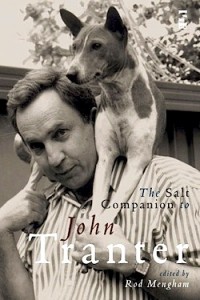
And more lately a Manchester Terrier, then another Manchester Terrier.
There’s a poem – a rather sad poem – about a little dog in Starlight. It was loosely
based on a poem by Baudelaire about a cat, but I didn’t want to write about cats just then.
I grow very attached to pets, but they just don’t live long enough, that’s the awful thing.
They all die, one after the other, and I find that really hard to bear.
I should like to have a capybara, but I guess I’d have to live in Argentina for that to
happen.
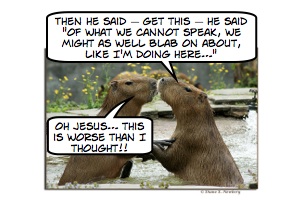
Two capybaras anxiously discussing Wittgenstein’s apparent rejection
of some of the key propositions of his Tractatus Logico-Philosophicus (1921).
Fitch: They’re larger than they look. Why the capybara? They’re preyed on by anacondas
and jaguars, right?
Tranter: And caiman crocodiles. You’re right, they look like nervous guinea pigs in
photos, but they are actually the size of large dogs when adult. They are giant rodents,
innocuous herbivores with no real defences, except to dive under the water. They spend
their time paddling around in shallow rivers, looking about anxiously and trembling.
They remind me of poets, I guess, only harmless.
Fitch: In a past interview, you said that you loved rock’n’roll as a teenager. You’ve
developed an international renown as a poet, and as founder and editor
of Jacket magazine, and you certainly know how to put on a show when reading /
talking in public. Do you think a sense of rock’n’roll has influenced your poetry
and your career and, if so, how?
Tranter: It’s nice that you feel I know how to put on a show when I give a reading.
I’m always aware that people have a choice as to how to spend their time.
Rock’n’roll? Yes. With my writing, I think I have been looking to create an art form that
could maybe give an audience a similar feeling of exaltation that good popular music
does. And rock’n’roll did shake things up: you only have to listen to the 1940s versions
of ‘Blue Moon of Kentucky’ – a mournful cowboy waltz in slow three-four time, with
acoustic guitar accompaniment, and then listen to what Elvis Presley
did to it in the fifties: very fast, very electric and very exuberant rock’n’roll in four-four
time. Look it up. The Internet makes that possible.
Of course with print publication, you can choose to present poems that are difficult
and complex or very long, and that may require two or three readings to give up most
of what they have to say. A reader curled up with a good book can browse back and
forth as they wish.
But with a live audience I try to choose poems that communicate most of what they
have to offer at one hearing, and it helps if they offer some auditory pleasure too, like
say rhyme or alliteration, or tell a story with a surprise ending in some way. Each poem
has a temporal duration, a duration the audience cannot guess at until the end happens,
and you can play with that. With a poem in a book, the reader can see right away if it is
a short or a long poem, and you can’t surprise them with a sudden abrupt ending.
I have performed a very long and difficult poem, but only once – actually the one we
were talking about, ‘The Anaglyph’ – at a conference in Melbourne in 2008; it ran for
over forty minutes. And it was read in Paris in 2011 by Antoine Cazé and Olivier
Brossard, and in Cambridge UK in 2012 by Jaya Savige, Michael Farrell and J.T. Welsch.
In my reading I tried to emphasise the humour in it, to help the audience get
through the thing. But as most of the audience were academics, perhaps I may have
been trying to make them suffer. You know, tenured academics have sabbaticals,
and long service leave, and holiday leave loading, and real holidays: all the things
that poets sadly lack. Not to mention a salary. Then again, the tenured academic is
virtually extinct these days.
There’s a poem by John Ashbery (him again!) that works beautifully read out aloud,
and I believe he read it for an audience in Ballarat in 1992, titled ‘We Were on the
Terrace Drinking Gin and Tonics’, and which reads:
When the squall came.
You can imagine the chuckle from the audience there.
Fitch: What about poets who explain their poems at length, prior to reading them?
Tranter: Yes, that can be awful. There’s a lovely parody of just such a writer by British
poet John Lucas, titled ‘The Next Poem’, which begins:
…which is called ‘Quick as Foxes’ and which can be found on page 479 of my Shorter Selected
for those of you who have the book will, I hope, in the words of T S Eliot, ‘communicate before
it is understood’, although as there are several allusions that may not be at once apparent but
which affect the overall meaning, I should like to note them, beginning with the title which some
of you will recognise from a minor poem by Wallace Stevens (who remains a major influence on
my work, and whose use of ‘quick’ to mean not merely ‘rapid’ but ‘alive’ and in a perhaps
Lawrentian manner ‘pregnant with foetus’) permits an implication that abuts on ‘thisness’
or haecceitas – a word my computer quite failed to recognize, and so repeatedly changed to
haircuts – the piquancy of which would of course have appealed to Stevens’s sense of the
fortuitous…
That kind of self-indulgent performance can be embarrassing, when it’s not hilarious.
But it does help the audience to grasp what’s going on if you give a brief – brief, not
verbose – introduction to each poem. Though some people say you shouldn’t explain
your work to an audience. Mallarmé wrote ‘Too precise a meaning / erases your
mysterious literature’. I usually ramble on for a few minutes between poems, about what
I thought I might have been trying to do. Maybe that just helps me and the audience
become less nervous.
And of course I try to read well, that is, to use my voice well. The Ancient Greek
and Roman poets studied rhetoric and voice training and the art of memory and
everything else that you need to present speech powerfully, whether you are
attacking a political rival in a law court, or pleasing your friends with a poetry
performance. Up to a hundred or so years ago they taught Rhetoric
in European and US universities. Not any more. We seem to have lost all that.
Fitch: You mentioned being nervous. Do you like attending or reading at poetry
events? As a shy person myself, I find that getting up in front of people — to talk, read
poems, give a paper or a speech, sing a song, whatever — is a kind of aversion therapy.
You said to me once in passing that you’re a shy person. How do you see this, this act
of getting up in front of people?
Tranter: I found it very hard, at first. I am shy, I was an only child, I had a lonely
childhood, blah blah. I used to stammer, and reading aloud for an audience was torture,
and I used to read too quickly. But as actors know, you disassociate when you act a part
– somehow you’re not yourself – and you can make a reading performance work for you
like an acting performance. And the more you do it, the easier it gets.
I eventually reached the stage where I enjoyed reading poems aloud, and that relaxes
the audience too. And a reading is more effective when the poet rehearses the
performance. I recall that when my wife Lyn and I put on a poetry reading at the PACT
theatre in Sydney in April 1969, I persuaded all the dozen or so poets to come to the
venue the day before and get the feel of the stage and the microphone, and do a
rehearsal. They all did, and they all read well on the night, except Bob Adamson. He
didn’t or couldn’t attend the rehearsal, and he fumbled the microphone
and didn’t read very persuasively. But we were all young then, and that was long ago.
It helps if the poet knows the poems thoroughly, and also knows how long the reading
of each poem will take. It’s irritating for the audience when a poet reads for a while then
anxiously asks the MC ‘Do I have any more time?’ It certainly breaks the spell.
And I try to learn my poems so I don’t need to keep looking at a script. It’s horrible to be
at a reading where the poets read quickly and inarticulately and keep their eyes fixed
on the page like frightened rabbits, and never look up at the audience. I used to do that.
Ugh!
Fitch: Of course not all good poets can read well on stage. I’m thinking also of some
songwriters whose fear of performing inhibits, even cripples, them, and who are often
better off as, simply, recording artists …
Tranter: Steeley Dan, for one. Though perhaps the complexity of their orchestrations,
and their use of great session musicians, makes the thought of live performance
unrealistic. And Dame Judy Dench confesses that even this late in her career (2012)
she has an awful recurring nightmare where she steps out onto the stage and her mind
goes totally blank: no lines, no words, nothing! That happens to me occasionally,
fortunately for a brief moment only. And I always have a script just in case.
I think performers owe it to their audience to learn how to do it well. Practice. I once
heard Geoffrey Hill read on stage on London. God, it was horrible. He was like a man with
a toothache or a migraine. He had a droning, complaining voice, and he started out by
saying how he hated reading out loud to an audience. Excuse me: we had all paid to be
his bloody audience, to hear him read, and we had all given up some of our precious
leisure time to do so. We can learn a lot from performers like jazz singer Anita O’Day.
Have you ever seen the 1959 movie Jazz on a Summer’s Day? It’s exhilarating. Rent
a DVD. When she sings her songs – that is, reads rhyming poems set to music – she never
looks down at a script, and she engages her audience all the time, clearly loving what
she does. You can see the smile – those big teeth! –and you can hear the smile in her
voice. She makes sure she looks good – new hat, gorgeous frock – and you can bet
that she rehearses and rehearses and rehearses. Of course there’s money in it, for
singers, and that concentrates the mind; not so for poets.
Fitch: Rimbaud liked erotic books full of misspellings and little children’s books,
if we’re to read his poem ‘Alchemy of the Word’ from A Season in Hell biographically.
Do you have any unexpected reading habits?
Tranter: I think there’s something slightly creepy about ‘erotica’. There seems to be
a flood of ‘erotica’, or semi-porn, e-books lately. Erotic books… but who can bother
to read, these days? Millions of porn videos are available on YouTube and other
Internet sites.
Fitch: Maybe it’s the way a reader has to use their imagination to picture something…
Maybe that’s what still piques a good reading session?
Tranter: Yes, the audience needs to have their imaginations exercised by the poems
they’re hearing. I suspect that’s why good comedians are successful: the images and
events they create in the imagination of the audience are vivid and bizarre. The
misspellings that Rimbaud liked are somehow appropriate, though: lexically incorrect
and politically incorrect all at once.
I am a compulsive reader, like all my mother’s side of the family, and like most people
of Scots descent. The Scots invented the Encyclopaedia Britannica, in Edinburgh,
I suspect so people would have something useful to read through the long Scottish
winters. I’ll read anything, really; a road atlas if that’s all that is available. I discovered
I share that with the German poet H M Enzensberger: we both like atlases.
I seek out and enjoy photography magazines and articles about computers and
typesetting. I used to buy two or three magazines every month. Now I spend hours on
the Internet each day, looking at things like that. And articles about fountain pens, and
stationery and bookbinding. My Internet journal has a list of links to sites I like, at
johntranter.net. Take a look at the foot of the right-hand side of the front page.
Fitch: You mentioned compiling the last two volumes/years of Black Inc.’s Best Of
Australian Poems anthology. You must have read a great deal of contemporary
Australian poetry. What would you say are the trends, if any, at the moment? What
turns you on and what doesn’t?
Tranter: Oh God yes, I have read over two thousand poems in the last two years, for
those anthologies. I don’t really look for trends, or care much for them. Trends tend to
be selective in any case. Some writers follow this trend, some writers follow that other
trend, whereas a good poem doesn’t necessarily follow any trend. Perhaps it creates
one, like Eliot’s ‘The Waste Land’; but you don’t know that at the time.
And editing those anthologies is not like editing my first poetry anthology, the very
polemical The New Australian Poetry (1979), that we’ve mentioned already. With these
‘Best Of’ collections, you are asked to select the best – whatever that is – from among what
you’re given, over a thousand poems which people send in from that year’s publications.
You can’t add anything, and the variety is vast. That’s the good thing: each year you
come across a thousand different poems, as different as fingerprints, from people you
have often never heard of. And you publish what you feel are the best. And thousands
of people read them. That’s wonderful!
Fitch: But what do you look for?
Tranter: I seem to do things by instinct, so I’m not aware of what I’m looking for until
I find it. What pleases me is technical skill, humour, cleverness, sincerity, passion, pathos,
the whole thing. Different poets offer different things. A good poem usually jumps out
at you, if you’re receptive. And if you have a ‘program’ you’ll miss out on some
wonderful pieces of writing, so I try to let myself be guided by the poems themselves.
I don’t care about names or reputations when I’m compiling these anthologies: that
wouldn’t be fair on the reader, would it? In fact I often cover over the names of the poets
as I read, so as to surprise myself. I like the fact that so many of the good poems are by
writers I don’t know.
For example, to me one of the loveliest poems in this year’s anthology (Best Australian
Poems 2012) is ‘My Town’ by Meg Mooney, a writer I had never heard of. It’s outwardly
a casual poem, about a person walking down the main street of a country town, saying
hi to some friends, maybe having a difficult day. That’s all. But the last line contains a
brief and touching confession of loss and grief, all the more effective for being so lightly
drawn, and being placed right at the very end. I would give my right arm to have
written that. Casual, moving, beautiful.
Fitch: Who are some Australian poets whose work you read and reread? Why do you
return to these poets and whose books are you looking forward to reading in the coming
months?
Tranter: If I name a few names I’ll offend all those I don’t name, so I won’t. Of course
I like and read writers from my own generation, but also some older poets and lots of
younger poets. Well, there are many more younger poets. Most Australians are
younger than thirty-eight. And I am glad there are so many good younger poets, all
with fresh ideas and new things to say, so I like reading them.
And overseas there’s a new anthology of young British poets just out from Salt
Publishing, The Salt Book of Younger Poets, that I’m looking forward to reading, and
Paul Hoover’s 1994 anthology Postmodern American Poetry has a larger second
edition just out.
Over my lifetime I have read far too many poems by other people, most of them
not first-rate, inevitably. For example, when I read through the six thousand entries
for the Tin Wash Dish anthology in 1988, over five thousand of them were not all that
good, as it happens. Which is fine, in the end; that doesn’t bother me. But for pleasure
I sometimes like something quite different. A good road atlas, say.
Fitch: Who are some non-western poets or, should I say, non-European and non-
American poets that interest you, past or present? Can you say a little about why and
how these poets appeal to you, as opposed to, say, your French and American
influences?
Tranter: When I was young I read a lot of Chinese poetry in translation. Li Bai (Li Po)
and Tu Fu are wonderful, but everyone says that. I was greatly impressed by Robert
Payne’s anthology of Chinese poetry over the last two thousand years, The White
Pony (Mentor, New York, 1960). Other Chinese poets whose work I like include Wang
Wei, Po Chu-i, and Su T’ung-po. There’s a lovely clarity and colour to their work, and
a strange linking of philosophy and nature, and they’re free of the romantic
individuality and boastfulness of many western writers. But I am naturally more
inclined to read among European and American writers, because of the cultural issues
I find I can relate to there.
Fitch: Any contemporary Asian poets?
Tranter: I’m looking forward to discovering some in Singapore, where I shall be soon,
for the Singapore Writers Festival, November 2012. There seem to be thousands of them
attending. And Ouyang Yu has translated some very interesting modern Chinese poets
which appear in the Best Australian Poems 2012 anthology I’ve just edited: De Er He,
Shu Ting and Shu Cai.
But I am forgetting a Singapore-born prose writer whose work I loved as a boy and
young man: Leslie Charles Bowyer Yin, born in Singapore in 1907. Like Lee Kuan Yew,
whom he vaguely resembled, he studied law at Cambridge University, but unlike Mr Lee
he threw it in to become a writer, after trying boxing for a while. He constructed a hero
figure, a kind of debonair freelance detective, and from the thirties until the eighties
he published short stories, a special magazine of stories, novels (all widely-translated)
and movies and television serials, all based on this character. But when he began writing
he changed his name to something the British would feel easier with, so now we know
him as Leslie Charteris. The character he invented was called ‘The Saint’. I used to watch
episodes of The Saint on television in Singapore, in 1971. Roger Moore, dubbed into
Cantonese. In that serial he used to drive a lovely Volvo sports car, a white P1800.
John Millett, one-time editor of Poetry Australia, also had one. I had a Volvo in
Singapore, but a family sedan, not a sports car. That’s the difference between me and
the Saint, I guess.
Fitch: We’ve hinted at the influence of the New York School of poets on your poetics.
They brought the art world and modern poetry closer together, in terms of sensibility
and in terms of employing more inter-disciplinary approaches to composition. How
have painting and the visual arts affected your work?
Tranter: Well, they have. They have affected my life and the way I look at things quite
strongly. I studied Architecture I in 1961, and was taught art by Lloyd Rees. His ‘Road
to Berry’ at the Art Galleryof NSW inspired Whiteley, and is a remarkable painting.
I painted on and off for another decade, and studied etching at East Sydney Technical
College for a semester, and later photography at the Australian Photography Centre.
And more important to me than any poem I might have read was seeing the Brett
Whiteley exhibition titled ‘Recent Works from London’, at Kim Bonython’s Hungry
Horse Art Gallery in Paddington in Sydney early in 1966, just before I went to London.
That early Whiteley stuff was a knockout.
And I worked for Barry Stern art galleries for a year in 1965-66, sweeping the floor
and driving the old Bentley. So art and design generally is immensely important to me
as a person, but I’m not sure how much of that gets into the poetry. The two fields are
so different in the tools they use: form, line and colour that are almost identical across
cultures, versus verbal linguistic structures that vary dramatically from culture to
culture.
Fitch: Since the late 1960s, you and Robert Adamson have had parallel paths in the
Australian poetry community, paths that have often intersected. Your work can be
aligned with certain aspects of the New York School and John Ashbery, whereas
Adamson’s work is more in tune with Projective Verse, or Robert Duncan. Certainly,
those influences are evident in both your work, even if not as defining characteristics.
Forty years on, how would you describe your relationship with Adamson and his
influence on you personally and on Australian poetry?
Tranter: Those are interesting comments about US influences. As for personal
cross-currents, I would say that Adamson has had little influence on me personally
and in terms of the kind of poetry I write. Personally – in my opinion – we’re almost
opposite: he’s the naughty boy, I’m the goody two-shoes. He’s fascinated by Mallarmé,
the cerebral goody two-shoes of Symbolism, and I find Mallarmé tedious; I’m more
interested in Arthur Rimbaud, the naughty boy of Symbolism. Opposites attract.
And once you know where his poetry comes from, you are tempted to feel that you
might as well go to the originals for your inspiration, rather than to a local version of
them. Let me explain. In a 1978 interview he did with me (cited earlier: Reprinted in
A Possible Contemporary Poetry. St. Lucia, Qld. : Makar Press, c1982. 160 p., and
available on the Internet at
http://johntranter.com/interviewer/adamson1978.shtml),
he talked about where he went for his inspiration. He said ‘When I was writing [the book]
Cross the Border it was mainly Duncan, Creeley, and the ‘Black Mountain’ poets. I always
had one of their books open, Olson, say, on my desk. With Swamp Riddles it would have
been Merwin, Mark Strand, you know, that mob; with Canticles it would have been Lowell,
Sylvia Plath, and Co., but I always had a book and looked, and consciously tried to copy
the poems.’ That’s a very frank outlining of a writer’s apprenticeship.
We supported each other’s poetry and editorial adventures in the early days. We were
friends and colleagues, part of the younger generation. And I think we were each inspired
by mainly US poets, as Adamson has mentioned, rather than inspired by each other’s
work. We would enthuse about a new discovery – Ashbery one day, Creeley the next.
But over the decades I saw his poetry voyage into an area I have little time for, and
as a warning not to go there, it has been useful. Let me quote from a review of his
book The Clean Dark which I wrote in 1989:
Post-modern theories are attacked in one poem (‘Lady Faith’) that sets up the religious
role of the poet — ‘the faith that pure song must employ’ — in opposition to these
inhuman, complex fads; though any poet who writes ‘The heart of language’s desire
wants to see / its blood back on the page’ is fighting a losing battle, in my opinion.
These operating-theatre heroics have about as much to do with the actual production
of modern poetry as Kirk Douglas with a bandage on his ear has to do with modern art.
(4)
I’m talking there about Kirk Douglas playing the part of Vincent van Gogh in a movie.
When you are young, almost anybody you meet is interesting; less so as you become
older and more experienced.
I had been friends with Adamson and many other young poets in the late 1960s,
when I came back from working in London and travelling through Asia. Around 1970
he wrote an ambitious 20-page poem, ‘The Rumour’ published as part of his second
book The Rumour in 1971.
Many poets were writing long poems at that period: my own ‘Red Movie’, Martin
Johnston’s ‘The Blood Aquarium’, John A. Scott’s lyric sequence ‘A’, Alan Wearne’s
‘Out Here’, and others.
Adamson brought a draft of ‘The Rumour’ to show me in 1970. I generally liked it,
and said so. I thought it was very adventurous. Though it did have one problem, to me:
it was full of first person pronouns: I, me, my, and so on. I felt that Adamson was a
profound narcissist, and so (in my opinion) he hadn’t noticed that the poem was about
himself: his thoughts, his experiences, his reading, and so on. I suggested turning some
of those pronouns into second or third person pronouns: you, they, he, she, and so on,
just to make the poem a little more varied and less self-centred. He agreed, and did so,
and I think the poem is better for it.
Perhaps, in hindsight, the poem is a failure overall – it is hardly talked about, and has
not been anthologised, perhaps because of its length – but if so, it is a brave and
wonderful failure, and I’d rather have that than a modest success. We have had too
many of those.
And while he seemed to me to trade on his reputation as a wild free thing when he was
young, Adamson is more than his misbehaviour. When Philip Mead and I came to look
through his poetry to select for the Penguin Book of Modern Australian Poetry in the
early 1990s, I was surprised and pleased to discover just how many really good poems
he had written over the previous twenty years, in so many different styles. Some of
them borrowed, perhaps, but so what? That’s how artists learn their craft. Philip and I
ended up choosing many more of his poems than I had imagined we might.
You asked about Adamson, but in many ways I’d rather talk about other poets who
have had a more important influence on my writing.
Fitch: Well, what other poets have affected you and your poetics? What other events
occurred in the 1970s and since, that have been significant for you?
Tranter: It goes further back than that. I began in my twenties by being impressed
and amazed by poets like Rimbaud, Desnos, Michaux, Enzensberger, Robert Bly, Louis
Simpson, John Ashbery, Bob Dylan. They were all important to me through the sixties,
when I was trying to work out what poetry could do. It took me a long time to work
that out.
More recently I have been impressed by poets like John Forbes, to my mind one of
Australia’s most original and talented writers, whose second book I published. Now he
was a very conflicted character, who trained to be a priest then gave it away. Anything
he wrote was interesting, and his best work combines a brilliant grasp of theory, art,
military history and philosophy, and his peculiar gift for surreal and powerful images
delivered with a dash of cynicism.
Or Gig Ryan, whose first book I published over thirty years ago. In a recent poem she
writes ‘She frills his omen, doily to the chair / as a film amps decrepitude’s feast /
… two-pot screamer /hinged to the bar / … though your chook wings fleck the footpath’
Very few poets have that alarming linguistic vigour, and have managed to produce so
much strong work over decades.
Or Ken Bolton, with his seemingly casual but sharp and wide-ranging view of art and
many other cultural artefacts. He studied Fine Arts and it shows, to good effect, and he
makes some very pointed observations in an apparently cool and disinterested tone
of voice.
Or Pam Brown, my co-editor at Jacket for some years, whose work has steadily grown
and become more assured and complex.Pam is carefully aware of just how much we
read things into the ‘landscape’, and how all our responses are politically and
economically conditioned, however independently original we may think we are.
These are all poets with a clear yet subtle political awareness, and unlike Adamson,
whose flexible talent can ventriloquise a dozen different voices perfectly, they have
each struggled to find and develop their distinctly separate and personal poetic voices
over a lifetime.
Forbes will be read in a hundred years’ time – he is already a hero among the educated
young, as a recent piece of graffiti in a Melbourne hotel toilet attests: “Forbes is fucking
awesome”. And there are perhaps half a dozen others who will be the Great Dead of the
distant future. And most of them are alive right now, and you can go and hear them read,
and buy them a drink! Please do!

(Graffiti in the men’s toilet of the John Curtin Hotel, 29 Lygon Street, Carlton,
VIC 3053, just opposite the Trades Hall, circa 2011.)
Other poets I have met whose work has marked my own would include Bruce Beaver,
an old friend. His tolerance and generosity, his unabashed romantic enthusiasms and
his willingness to make it new was an inspiration to a whole generation of younger poets.
Or Peter Porter, a much more formal writer, whose Euro-centred poetry was all his
own and whose immense personal generosity still astonishes me. I didn’t always agree
with Peter’s themes and his plentiful historical and cultural allusions, but I learned a
lot from his poetry, and I’m grateful it was there. And we need something classy and
powerful to balance the gibberish of the howler monkeys of the Open Mike. Those two
older poets, and John Forbes, are not with us now, sadly.
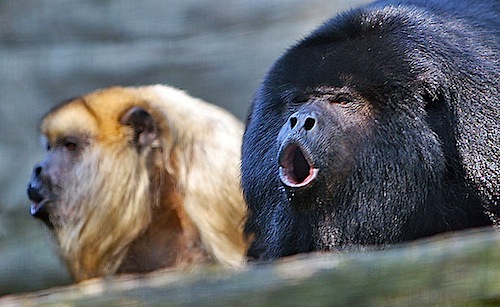
Howler monkeys: Creative Commons photo by ‘Steve’ at sherseyva@me.com
The American philosopher George Santayana (6) once wrote ‘Those who cannot remember
the past are condemned to repeat it.’ Most of us have already forgotten poet Grace Perry
(1927-87) who died a quarter of a century ago, and how she created Poetry Australia
magazine.
In 1962 she began editing The Poetry Magazine for the Poetry Society of Australia.
In 1964 she started her own magazine, Poetry Australia, and founded the publishing
firm South Head Press. She sponsored dozens of poetry readings and competitions
(the Farmers Poetry Prize – remember Farmers? A huge department store in what is
now the Myer Sydney City building on Market Street between George and
Pitt Streets, in those days with its own restaurant and art gallery, now gone) and
conferences at Macquarie University when it was mainly scrubland. She published
her first two poetry books as a teenager, then graduated in Medicine from the
University of Sydney in 1954 and went on to publish seven other poetry titles and a
play. She was mother of several very bright children, and a general medical
practitioner in the Five Dock area of Sydney for many years. She was awarded the
NSW Premier’s Award for Special Services to Literature in 1985, and an AM in 1986,
not long before she died. She seems to be forgotten as a poet, now.
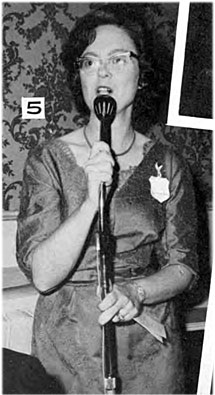
(Grace Perry, 1 July 1964, at the third birthday party for The Poetry Magazine founded
in 1962. Even as she was praising the assembled crowd of mainly older poets, she was
planning to take the magazine away from them. Photo courtesy Alan Wearne.)
So, early in 1964 – as you can see in the photo – she was the energetic editor of
The Poetry Magazine for the Poetry Society of Australia. She struck many people
including me as a a bit of a bully, and the Poetry Society should have been more
careful. When she wanted to publish an issue of Poetry Magazine with some overseas
content in 1964, the Society remonstrated with her: they wanted more Australian
poetry, and less of this modern overseas stuff.
Enter the machine. In those days addressing envelopes was a real problem. I
mentioned that I worked for Barry Stern Galleries in the 1960s. One of the tasks I
dreaded was the fortnightly addressing of several hundred envelopes, by hand,
for the invitations for the next week’s gallery opening. More recently, computers
have spared us that drudgery.
But in the old days you could save your aching wrists by employing a machine
called an Addressograph, which used clever metal plates with embossed name
and address fields to stamp envelopes with their addresses more or less
automatically. It worked rather like the old (1980s) credit card franking
machines: you used something like an inked roller, and an envelope was
stamped. The plates cost money to have them made and to store them, but for a
regular mailing list, where you could use them over and over, several times a
year, for decades, the time they saved was worth it. That’s how Grace took the
magazine away from the Poetry Society: she stole the Poetry Society mailing
list.
To quote Bruce Beaver (7) in my 2003 interview with him: ‘Yes… they came to
see me, one day, from the Poetry Society, and said, “Look, Grace has taken our
list”. And I said, “I helped her.” “Oh. I didn’t know that. Oh, I understand.
Goodbye.” “Goodbye,” I said. It was Ella Turnbull. All these things are in the
past now. But Grace and I were quite naughty. We severed relations with the
Poetry Society and I became a contributing editor to Poetry Australia.’

An Addressograph-Multigraph address plate and the stamped image it makes.
Grace chose a format identical to the old Poetry Magazine, and even used the same
printers, Edwards and Shaw, for both the new Poetry Australia magazine and her new
poetry press, South Head Press, and of course the same subscriber list and Addressograph
plates for both. So when the first issues of Poetry Australia went out to the subscribers
of Poetry Magazine in1964, with the same look, the same size, and the same editor,
most of them assumed it was just a new version of what they were used to.
In my belief, there is an interesting comparison to be made between Grace Perry’s
transformation of the old Poetry Magazine, on the one hand, and the way Adamson
and his allies took over the Australian Poetry Society and their magazine five years
later, changing its name from the Poetry magazine to New Poetry, by using patient
and quite legal branch-stacking tactics learned perhaps from the Labor Party and
(in my opinion) from Bob’s friend, Balmain left-wing lawyer, the late Murray Sime.
Both Grace Perry (as a strong individualist) and Bob Adamson and his friends
(a loose group of allies willing to share power and responsibility) had similar
purposes: to force a moribund poetry magazine to publish new international work.
They each achieved similar results: an energetic and popular international-leaning
magazine, but these similar results were achieved by using very different tactics.
From those crucial years from about 1965 to 1970 Poetry Australia was a very
important magazine, the only Australian outlet really for forward-looking verse,
and one with a constant interest in poetry from overseas. I published there, and was
dragooned into helping with the office routine from time to time. So did lots of my
young friends. And Grace agreed to let me edit a special issue of the magazine filled
with the new Australian poetry in 1970, the ‘Preface to the Seventies’ issue. I
included a two-page poem of Adamson’s, ‘Your Magazine Husband’, and when Grace
saw it she asked me to take it out. I threatened to walk and take the issue with me,
and she relented.
Around the same time she published my first book, Parallax, in June 1970. So she had
faith in my early work, and I’m grateful for that.
Grace was a remarkable woman and many of her friends refer to her as ‘Amazing Grace’.
As Lyndon Johnston remarked on another topic, better to have a person like that in
your tent pissing out, than outside the tent pissing in.
She was attracted to the poetry of American poet William Carlos Williams, also a medical
doctor and general practitioner. She was internationalist, and forward-looking, but only
up to a point. Just before I left for a few years in Singapore in 1971 she took me aside.
I remember we walked out onto the front lawn of her surgery at Five Dock in Sydney.
As best I can recall she said ‘I have to say I don’t like the way your writing is going, John,’
All this experimenting. It’s going too far. You should look at William Carlos Williams.
He’s a modern poet, but he’s not way out, and he’s not a wild experimentalist.’
I replied that I felt I had to do what was right for me, and we parted amicably.
Maybe I should devote my retirement to writing a memoir, or perhaps a Lives of the
Poets, like Doctor Johnson. Let me quote John Mullan, in the Guardian of 12 September
2009:
At the opening of his life of Savage, Johnson talks of the ‘mournful narratives’ of
‘literary heroes’. The Lives of the Poets are ‘mournful narratives’ in a double sense.
They chronicle ‘the miseries of the learned’, the thwarted ambitions and the gnawing
doubts of even the best writers. They also speak for something deeper – Johnson’s
own particular melancholy, his mournful sensitivity to human disappointment.
Fitch: I read in Jacket magazine a correspondence between Robert Duncan and a
young Chris Edwards. In one letter, Duncan describes his encounters with Australian
poets and their poetry. He mentioned, with regards to your poetry, a “refusal of the
glorious”. I know this was in the 1970s, and that you’ve written many books since then,
but what do you think Duncan meant by this? Is ‘the glorious’ something that’s been
lost in some contemporary poetry, or is it not as relevant to certain forms of poetry
as Duncan makes out, the same way landscape, or religion, or the conceptual, say, are
not necessarily relevant to certain poetry?
Tranter: Duncan was a very smart fellow, and that comment of his is very sharp.
The nearest to the glorious I’ve met with in a poem is Larkin’s ‘The Whitsun Weddings’.
That’s a lovely poem, and embodies the deeply glorious built out of common human
materials almost in defiance of the poet. I’d like to achieve something like that, but I
think you just have to write your best and hope. It’s a matter of grace, I think. It is
given to you. You can’t claim it, as Duncan did, or make it up, as I believe Adamson
did from time to time. But perhaps I’m being too negative.
Unlike Adamson or Chris Edwards, I didn’t meet Duncan at the time he visited
Australia in the mid 1970s; I was living in Brisbane, working as a radio producer
for a living, a long way from the centre. I did meet and interview him in California
a decade later, in 1985, not long before he died.
You can read the interview here:
http://jacketmagazine.com/26/dunc-tran-iv.html
Of course Duncan’s own attitudes grew out of his own life experience and his attempts
to come to terms with the history of poetry as he saw it, and contemporary American
culture. And he was gay in a time when that was very difficult. I remember listening
to John Ashbery launch a book of poetry by Howard Moss at Dalton’s Bookstore in
the Village in Manhattan in New York in the 1980s, and idly noticing that Ekbert
Faas’s book Young Robert Duncan: portrait of the poet as homosexual in society
had been filed under the ‘Sex Education’ section. How strange!
And Duncan can’t really be blamed for the young hero-worshippers who turned his
imaginative constructions into idols.
To get around to your question, I think I can see and perhaps agree with what he means
by my ‘refusal of the glorious’, but to my mind he manufactured the glorious too often
when he claimed to have discovered it. I would call it, in my case, not ‘refusal of the
glorious’ but ‘refusal of the bullshit’. It’s a particularly Australian attitude, and perhaps
it limits what you let yourself see. But it does protect you from enthusiasts and
evangelists.
Too many local poets in the 1960s used a formulation like that to justify their Leavisite
poetry, with its ‘felt sense of life’, chock-a-block with ‘life-affirming values.’ They remind
me of Philip Larkin’s church-going cyclist, who (‘hatless’) takes off his bicycle clips ‘in
awkward reverence’ at the sighting of an Eastern Spotted Epiphany scuttling off into
the underbrush.
Fitch: Among Australian poets of an academic and avant-garde inclination, I’m
noticing a slight shift from their being focused on mostly Europe and America, to their
being more concerned about what constitutes an Australian poetic with regards to
surrounding regions such as Asia, but also with regards to Indigenous ideas of poetic
thinking. Peter Minter’s keynote speech at the ‘The Political Imagination: Contemporary
Diasporic and Postcolonial Poetries’ symposium laid out a vision of Australian poetry
not as simply an island nation, but as a collection of archipelagos which poets each
write from, of, or resonate with/in. What do you think about this refocussing?
Is it possible to talk about what might constitute an Australian poetic thinking for the
twenty-first century without feeling anxious or apologetic? Is there really an elephant
in the room when it comes to Australian poetry?
Tranter: Last question first: yes, there was an elephant in the room, and it used to be
called Jacket magazine. It has left the room. See my paper on that topic, on the website
of the Journal for the Association for the Study of Australian Literature:
http://www.nla.gov.au/openpublish/index.php/jasal/article/view/2244
Peter Minter is a good thinker, and generally I agree with his formulations here, which
are very adventurous: it is important for Australians to get out from under the weight
of the dead hand of English Literature, or Modern American Literature, and find some
other way to see ourselves.
But the more you travel, the more this obvious truth strikes you: according to the
Australian Bureau of Statistics, in 1994, Australia’s share of the world’s population
was 0.3%. In comparison, the United Kingdom had about 1%, the United States of
America about 5% and China 21%. There are eighteen times as many poets writing in
the US today as there are in Australia. And when you add the British, we make up only
one twentieth of the poets writing in English in Britain, the US and Australia.
That imbalance is crippling.
Maybe Peter Minter’s thinking will help us out of that bind. But I’m not sure.
Peter Porter’s solution to the problem was to go to London and live in the belly of the
beast. Many other Australians of his generation did the same. But is being patronised
as a colonial an answer? Who wants to be the Rolf Harris of Australian poetry?
But to Indigenous poetries: poets like me were raised on early English alliterative verse
and Sir Thomas Malory and Shakespeare and Keats and Coleridge and Wordsworth and
Byron and T.S. Eliot and Pound and O’Hara and Ashbery, not to mention Homer and
Sappho and Callimachus and so on. That’s where modern poetry in English comes from:
we can’t pretend that it is not.
I sometimes reflect on the fact that we are citizens of an Australian democracy based
on an English system of government that developed over a thousand years, on an island
twelve thousand miles away. Most of us know very little of Indigenous ideas and society,
and the Aboriginal poetry we might come across grows intimately out of a complex
culture we know nothing about, unless we’re anthropologists. For the Indigenes ‘poetry’
was always verbal (they didn’t develop writing), and central, and took on the role of
serious history in many ways, in the same way that Homer- writing for the ear not the page
– was a historian of the Trojan Wars. It was never what John Forbes satirises so beautifully
(his own role) in his ‘Monkey’s Pride’: ‘society has elected me / to decorate / its falling
apart with a useless panache’. That self-reflective cynicism, for good or ill, is lacking in
Indigenous verse.
Fitch: Finally, what’s next for you?
Tranter: I’d like to become a wealthy stockbroker, like Paul Gaugin, and go and live
on Tahiti, but I am stuck with the career of poet, I guess. I try to see it as an opportunity
for a kind of spiritual exercise: somehow you have to go on writing and publishing the
best poetry you can, and somehow you have to keep up a positive and kind-hearted
attitude, in spite of the deceit, corruption and incompetence that make the arena of
literature in Australia so contemptible an environment to work in. It’s hardly possible,
but I feel I have to try to do it. Day by day.
Fitch: And what are you writing at the moment?
Tranter: I am writing a few small, rhyming poems.
~ ~ ~
1. http://jacketmagazine.com/27/faga-mint.htm
2. Rod Mengham. «The Salt Companion to John Tranter» (Salt Companions to Poetry). Fulbourn CAMBRIDGE UK 2010. Salt Publishing. EAN13: 9781876857769 ISBN: 9781876857769
3. ‘A sufferer from Fugue, a Fugueur /Fugeuse, would typically reside in France at the end of the nineteenth century and would suffer from the occasional irresistible desire to travel long distances rapidly, apparently aimlessly, and, crucially, with subsequent partial or, more usually, total amnesia.’ From a review of Hacking, Ian. Mad Travellers: Reflections on the reality of transient mental illnesses. xii, 239pp., illus., maps, bibliogr. London: Free Association Books, 1998. In Source: The Journal of the Royal Anthropological Institute, Vol. 7, No. 3, (Sep., 2001), pp. 600-601. Published by: Royal Anthropological Institute of Great Britain and Ireland. Stable URL: http://www.jstor.org/stable/31344460
4. BLOOD AND GUTS — poems from the bottom of the river. John Tranter reviews The Clean Dark, by Robert Adamson. Paper Bark Press, 1989; ISBN 0 9587801 2 9. First published in «Editions» no. 4 November 1989 (p.31), and available on the Internet at http://johntranter.com/reviewer/1989-ra-clean-dark.shtml.
5. George Santayana. The Life of Reason (1905-1906). Vol. I, Reason in Common Sense.
6. This interview was first published in Southerly magazine, and is available on the Internet at http://johntranter.com/interviewer/beaver-2003.shtml.

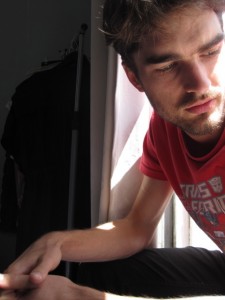











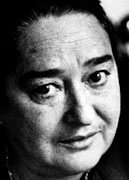


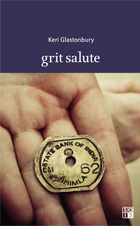


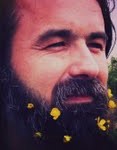




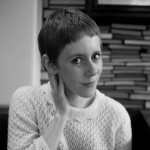












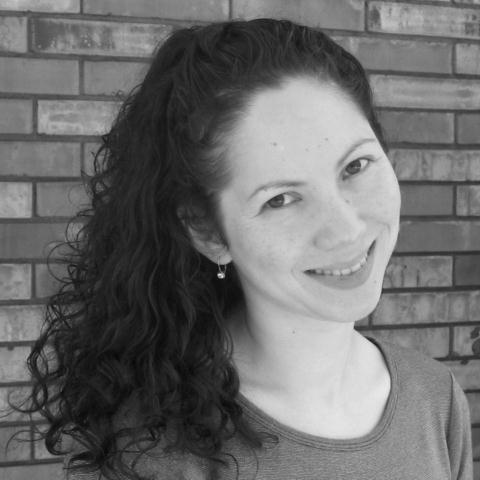 Kim-An Lieberman is a writer of Vietnamese and Jewish American descent, born in Rhode Island and raised in the Pacific Northwest. She holds a Ph.D. in English from the University of California, Berkeley. Her poetry collection, Breaking the Map, won the 2008 First Book Award from Blue Begonia Press.
Kim-An Lieberman is a writer of Vietnamese and Jewish American descent, born in Rhode Island and raised in the Pacific Northwest. She holds a Ph.D. in English from the University of California, Berkeley. Her poetry collection, Breaking the Map, won the 2008 First Book Award from Blue Begonia Press.

